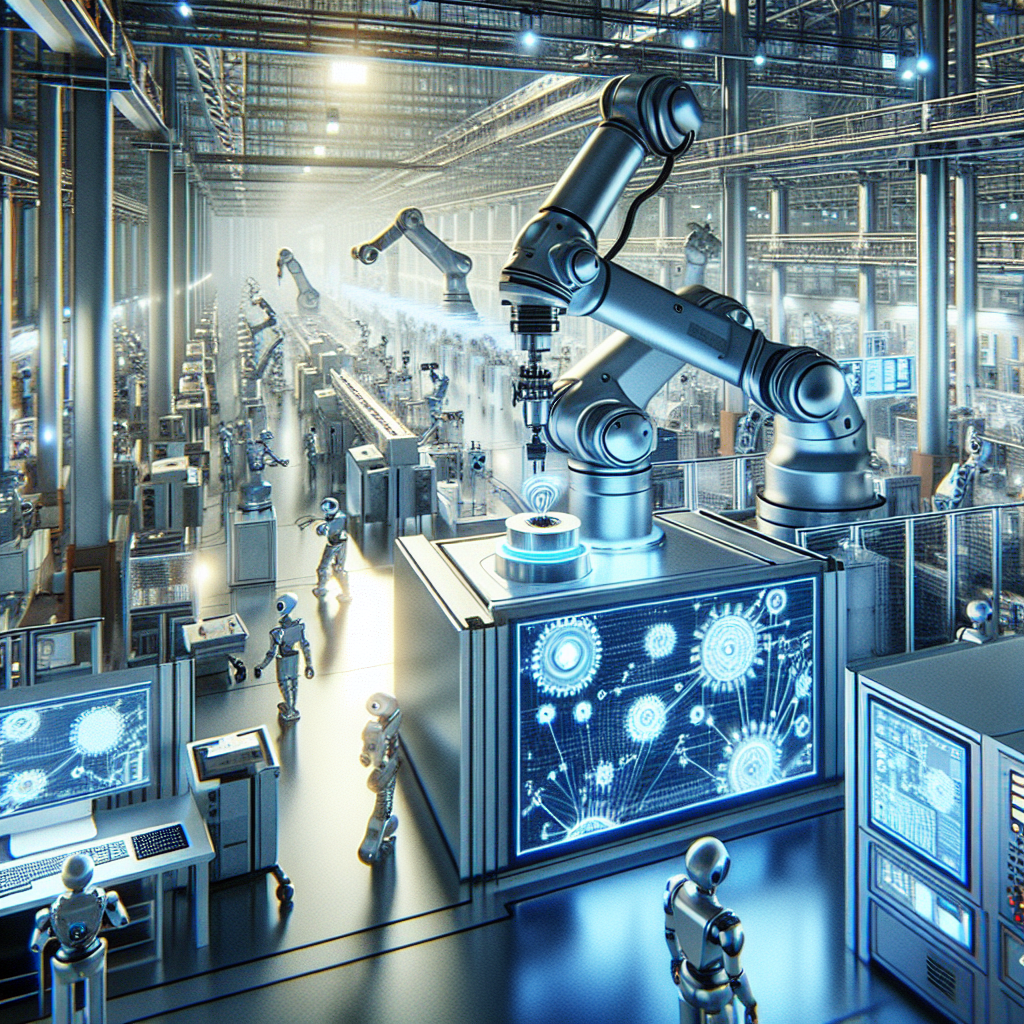Precision machining is an essential process in the manufacturing industry that involves the use of computer-controlled machines to produce high-quality parts with tight tolerances. This process has traditionally relied on skilled machinists to operate the machines and ensure that the end products meet the required specifications. However, with the advancements in artificial intelligence (AI) technology, the role of AI in precision machining has become increasingly important.
AI has the potential to revolutionize the precision machining industry by improving the efficiency, accuracy, and reliability of the machining process. AI-powered machines can analyze vast amounts of data in real-time, allowing them to make decisions and adjustments on the fly to optimize performance. This level of automation can lead to faster production times, reduced scrap rates, and improved overall quality.
One of the key ways in which AI is being used in precision machining is through predictive maintenance. By monitoring the performance of machines in real-time, AI can detect potential issues before they cause a breakdown, allowing for proactive maintenance and minimizing downtime. This not only saves time and money but also helps to extend the lifespan of the machines.
AI is also being used to optimize tool paths and cutting parameters to maximize efficiency and reduce tool wear. By analyzing data from past machining operations, AI can recommend the best tool paths and cutting speeds for a given part, leading to faster production times and lower costs. This level of optimization would be nearly impossible to achieve manually, making AI an invaluable tool in the precision machining process.
In addition to optimizing tool paths, AI can also be used to monitor and control the temperature of the machining process. By using sensors to track the temperature of the cutting tool and workpiece, AI can make adjustments in real-time to prevent overheating and ensure consistent quality. This level of control is essential for machining materials such as titanium and stainless steel, which are sensitive to temperature fluctuations.
Another key application of AI in precision machining is in quality control. AI-powered machines can analyze images of machined parts to detect defects such as burrs, scratches, or surface imperfections. By comparing these images to a reference standard, AI can identify parts that do not meet the required specifications and automatically reject them. This level of automation not only saves time but also ensures that only high-quality parts are produced.
Overall, the role of AI in precision machining is to improve efficiency, accuracy, and quality while reducing costs and downtime. By harnessing the power of AI, manufacturers can stay competitive in a fast-paced industry and meet the increasing demands for high-quality parts with tight tolerances.
FAQs:
Q: How does AI improve efficiency in precision machining?
A: AI can analyze vast amounts of data in real-time to optimize tool paths, cutting parameters, and temperature control, leading to faster production times and reduced costs.
Q: Can AI be used for predictive maintenance in precision machining?
A: Yes, AI-powered machines can monitor the performance of machines in real-time to detect potential issues before they cause a breakdown, allowing for proactive maintenance and minimizing downtime.
Q: How does AI improve quality control in precision machining?
A: AI can analyze images of machined parts to detect defects such as burrs, scratches, or surface imperfections, ensuring that only high-quality parts are produced.
Q: What are the benefits of using AI in precision machining?
A: The benefits of using AI in precision machining include improved efficiency, accuracy, and quality, reduced costs and downtime, and the ability to stay competitive in a fast-paced industry.

